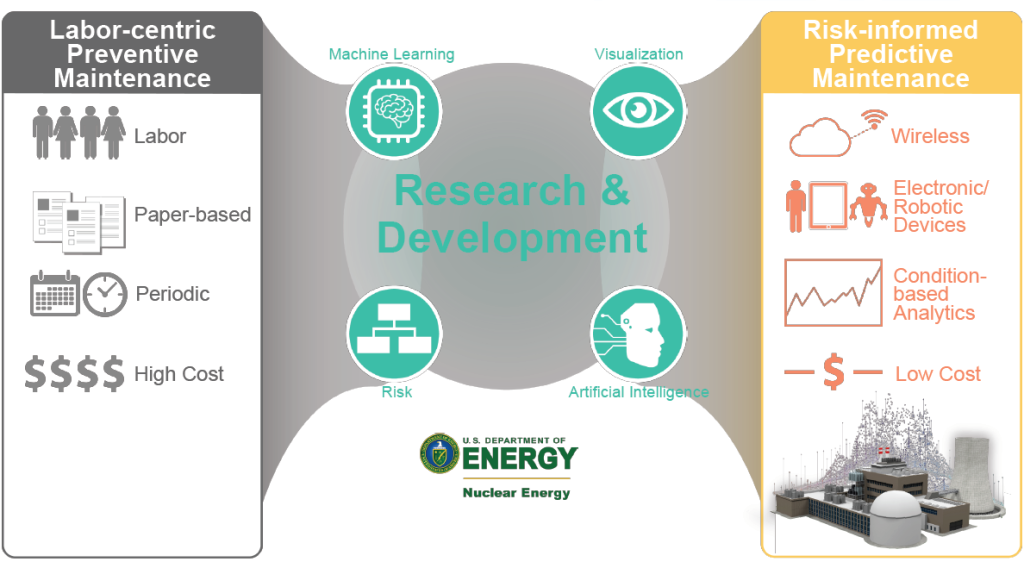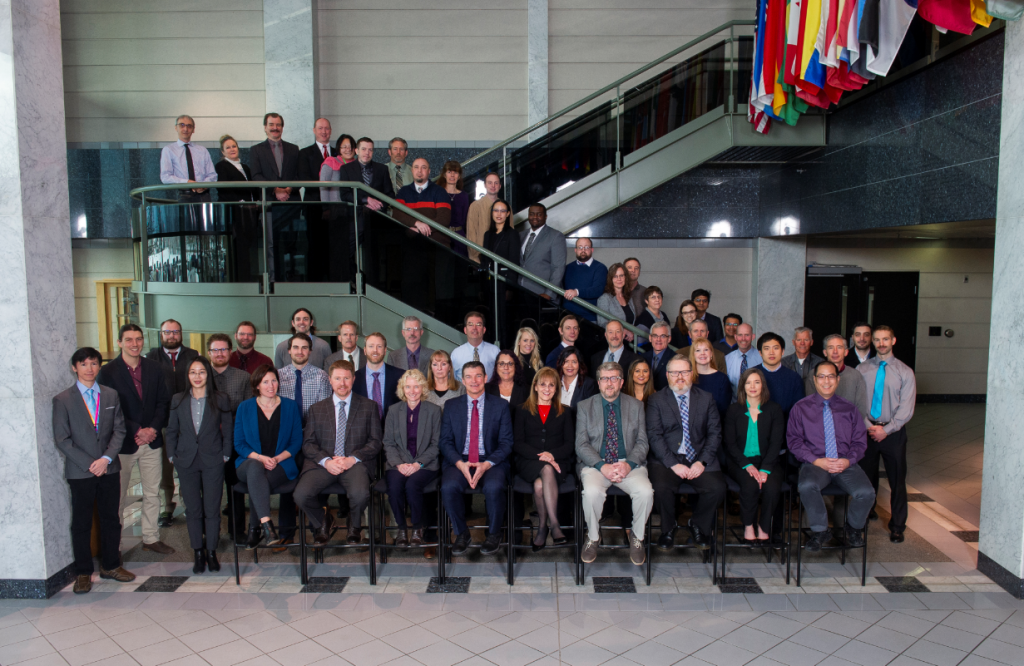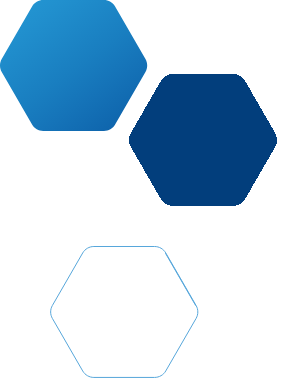Artificial Intelligence
and Machine Learning
Artificial intelligence (AI) and machine learning (ML) are helping INL scientists pursue advances in engineering and energy research. Computers that mimic cognitive functions and apply complex algorithms to analyze data can help researchers solve a variety of technical issues. This new approach aids in everything from materials design for advanced reactors to making nuclear power plant control rooms more usable and efficient.
Our vision is to use AI and ML to glean new research insights and enhance INL’s core research capabilities.
What is artificial intelligence and machine learning?
AI is a computer-based approaches to activities that normally require intelligence (translating data and information into knowledge) to perform effectively. ML is a form of artificial intelligence in which computer algorithms learn from data to form predictive models.
Supporting INL's research missions
INL’s vision is to change the world’s energy future and secure our nation’s critical infrastructure. To support INL’s research missions, we have five goals.
- Methods: Use AI/ML to bridge existing research gaps.
- Data: Use INL’s unique data sources and expertise to leverage AI/ML for new insights.
- Tools: Innovate an agile AI/ML computing infrastructure.
- People: Develop and mature researchers’ AI/ML capabilities.
- Security: Ensure trustworthy AI/ML that is explainable to end users and decision makers.
Artificial intelligence and machine learning support a variety of research areas and useful applications:
Nuclear Energy:
- Detecting process anomalies in a nuclear power plant before they develop into significant events.
- Automating manual activities of a nuclear power plant operations by applying natural language processing methods to documents that are generated daily.
- Applying classical and machine learning-based image processing methods to automate manual and visual tasks in a plant.
- Creating risk-informed predictive maintenance strategies for nuclear power plant, based on predictive models developed to monitor an identified plant asset.
- Developing intelligent operator aids to enhance the operator’s ability to monitor nuclear plant systems and components.
- Utilizing virtual operators to create a simulation that accounts for a variety of performance-affecting human factors.

Advanced Scientific Computing:
- Leveraging natural language processing for information extraction from unstructured scientific data
- Ensuring critical infrastructure cybersecurity through advanced threat detection
- Utilizing the power of High Performance Computing systems to get new insights from complex data
- Connecting experienced data scientists with domain scientists for collaborative research
- Visualizing AI/ML analysis and results to provide new insights.
National Security:
- Identify anomalous network traffic, alert operators and deploy virtual decoys to slow or halt hacking attempts. Autonomic Intelligent Cyber Sensor is an INL artificial intelligence breakthrough that can protect the nation’s critical infrastructure from devastating cyberattack. The sensor works autonomously to give industries the power to quickly identify and divert hackers, using machine learning to identify and map industrial control systems.
- Detecting malicious traffic on 4G/5G cellular networks
- Classifying radio frequency signals using artificial neural networks.
Emergency Response:
- Identify patterns in nonlinear data to understand the conditions that will result in future emergencies, such as earthquakes or electrical grid failures.
Transportation:
- Improving air traffic control efficiency and relieving traffic control on busy city streets.
Webinars
INL is working to raise awareness of its work in AI/ML and encourage more researchers to use the available resources. We are making our research outcomes available through technical reports and a series of symposia focusing on how AI/ML is impacting science and engineering. The presentations focus on the latest advances in AI/ML, current applications in the nuclear industry, research opportunities and ongoing collaborations.
INL AI/ML Symposiums
INL AI/ML Symposium 13.0 – held March 28, 2024
The 13.0 Symposium focused on vision and visualization with AI/ML.
Presentation Slides
INL AI/ML Symposium 12.0 – held Nov. 2, 2023
The 12.0 Symposium focused on Diversity, Equity and Inclusion in AI/ML.
Presentation Slides
INL AI/ML Symposium 11.0 – held April 27, 2023
The 11.0 Symposium focused on AI/ML in instrumentation, control, and automation.
Presentation Slides
INL AI/ML Symposium 10.0 – held Jan. 19, 2023
The 10.0 Symposium focused on AI/ML technology and some novel applications.
Presentation Slides
INL AI/ML Symposium 9.0 – held Sept. 8, 2022
The 9.0 Symposium focused on natural language processing methods and applications.
Presentation Slides
INL AI/ML Symposium 8.0 – held May 26, 2022
The 8.0 symposium focused on computation infrastructure in artificial intelligence and machine learning.
Presentation Slides
INL AI/ML Symposium 7.0 – held February 10, 2022
The 7.0 Symposium focused on addressing data issues and using data for different science and engineering applications.
Presentation Slides
INL AI/ML Symposium 6.0 – held Oct. 14, 2021
The 6.0 Symposium focused on resilience, both in resilience applications of AI/ML or in resilience in AI/ML approaches.
Presentation Slides
INL AI/ML Symposium 5.0 – held June 8, 2021
The 5.0 Symposium focused on trustworthy AI/ML.
Presentation Slides
INL AI/ML Symposium. 4.0 – held February 9, 2021
The 4.0 Symposium focused on trustworthy AI/ML.
Presentation Slides
INL AI/ML Symposium 3.0 – held October 16, 2020
The 3.0 Symposium discussed how ML and AI are currently being applied in the industry, including opportunities for engagement and collaboration.
Presentation Slides
INL AI/ML Symposium 2.0 – held July 9, 2020
The 2.0 Symposium discussed how ML and AI are currently being applied in the industry, including opportunities for engagement and collaboration.
Presentation Slides
INL AI/ML Symposium 1.0 – held April 17, 2020
INL held the first symposium on AI/ML approaches and activities related to science and engineering in April. The “1.0 Symposium” focused on internal-to-INL activities and capabilities. A total of eleven speakers discussed a variety of current topics and future applications. Over 200 INL staff participated in the symposium.
Topics included:
- AI Overview
- Robotics
- Data Analysis
- Modeling Human Cognition
- ML in Current Projects
Presentation Slides
Programs working with AI
Digital Innovation Center of Excellence
The Digital Innovation Center of Excellence (DICE) at INL was created to support the development of advanced reactors through digital engineering. Developed in part to predict reactor performance for the Versatile Test Reactor, DICE is organized into eight key pillars:
- Next-Generation Artificial Intelligence
- Operational Artificial Intelligence
- Practice and Culture
- Digital Twin
- Digital Thread
- Decision Sciences and Visualization
- Cyber and Data Resilience
- Computing Platforms
For more information on DICE, click here.


Nuclear Safety and Regulatory Research Division
INL’s Nuclear Safety and Regulatory Research Division supports a wide variety of activities. In particular, it ensures the nation’s safe, competitive and sustainable use of engineered systems in many domains by applying INL capabilities to impactful issues in risk, reliability and operational performance.
Our recent AI/ML projects include:
- Advanced Remote Monitoring for Operations Readiness
- Digital Architecture to Support an Automated Plant
- Automation of the Work Process
- Risk-Informed Predictive Maintenance Strategy
- Computerized Operator Support System
- Dynamic Human Reliability Analysis
To work with us on your AI/ML project or to find out more about these INL AI/ML activities, contact our subject matter experts:
Curtis Smith – Division Director, Nuclear Safety & Regulatory Research
John Koudelka – Manager, AI, Data Analytics, and Visualization
Chris Ritter – Director, Digital Innovation Center of Excellence
Nancy Lybeck – Manager, Data Science & Applied Statistics
Craig Primer – Automation, Instrumentation, & Controls
Ronald Boring – Human Factors & Reliability

